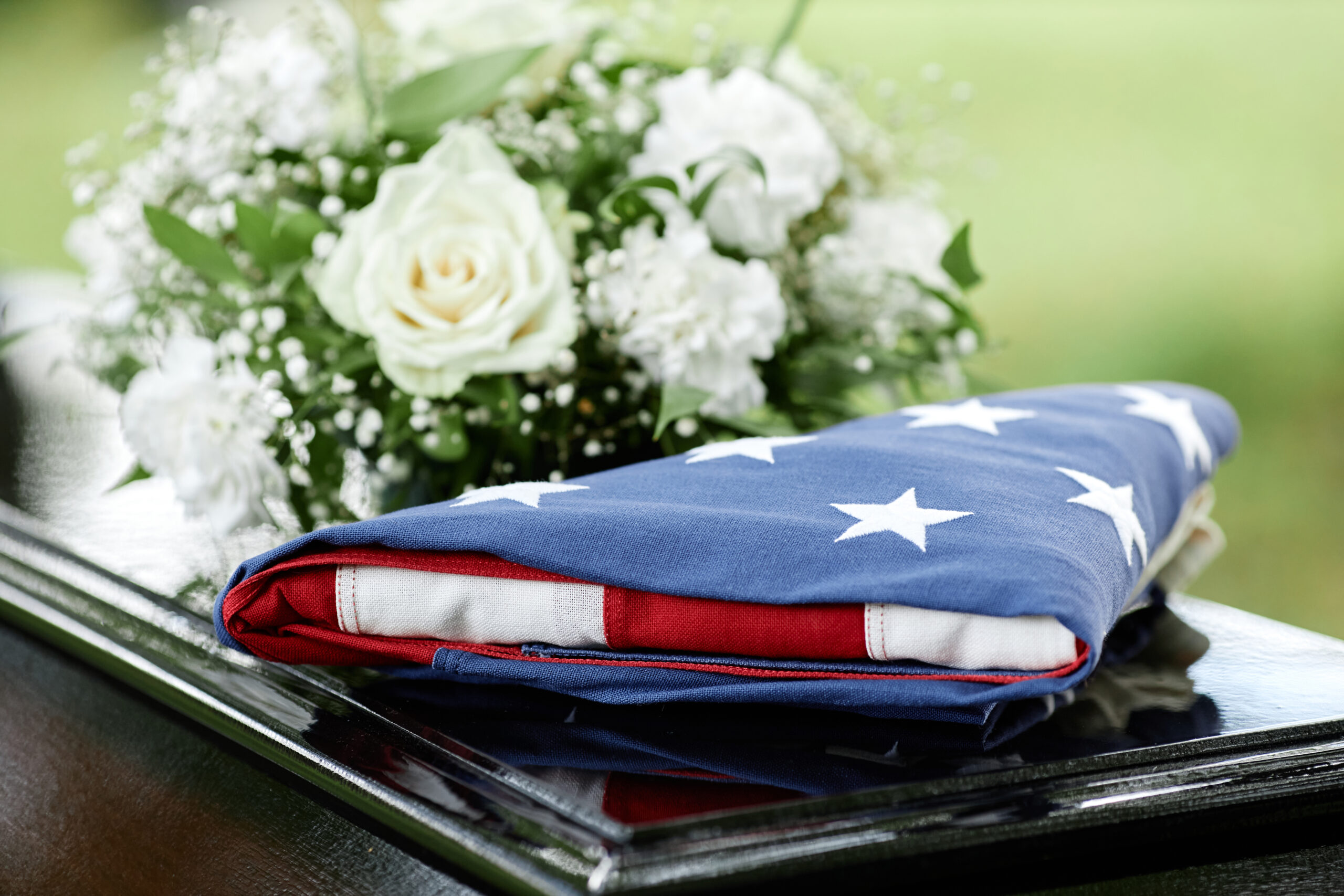The death of a veteran can be an incredibly difficult time for surviving family members, filled with emotional and financial challenges. Understanding the benefits available to them is crucial. One such benefit that many may not be aware of is Dependency and Indemnity Compensation (DIC). Leah Bucholz and Rebecca Deming, an accredited VA attorney from ProVet Legal explore what DIC is, who is eligible, and how surviving dependents can access these benefits.
Table of Contents
What is Dependency and Indemnity Compensation?
Dependency and Indemnity Compensation (DIC) is a benefit provided by the Department of Veterans Affairs (VA) to eligible survivors of service members who died in the line of duty or as a result of a service-connected disability. This benefit is a tax-free monetary payment intended to help surviving spouses, children, and in some cases, parents, maintain financial stability after the death of a veteran.
DIC is not a continuation of the veteran’s benefits but rather a separate entitlement for the survivors. This distinction is essential as it means that the amount a survivor receives is not directly tied to the benefits the veteran was receiving prior to their death.
Eligibility Requirements for Dependency and Indemnity Compensation
Surviving Spouses
The primary recipients of DIC benefits are surviving spouses. To be eligible, the surviving spouse must have been married to the veteran for at least one year before the veteran’s death. There are some exceptions to this rule, particularly if the couple was separated due to circumstances beyond the spouse’s control. For example, if the veteran required care in an assisted living facility or if the spouse had to leave due to abuse, the surviving spouse might still be eligible.
Common law marriages can also be recognized for DIC benefits, provided the marriage was legally valid in the state where the veteran lived. However, fewer states recognize common law marriages today, making it crucial to verify the legal standing of the marriage.
Surviving Children
Surviving children of the veteran are also eligible for DIC benefits under specific conditions. These benefits are available to biological, adopted, or stepchildren of the veteran. The key factors determining eligibility are the child’s age and status. Children are generally eligible until they turn 18. However, if they are still in school, eligibility extends to age 23. Additionally, children with severe developmental disabilities who are incapable of self-sufficiency may continue to receive benefits beyond the age limits.
If the child is under the custody of someone other than the surviving spouse, such as in cases of divorce or the child living with a biological parent who is not the surviving spouse, the custodian can file for DIC on behalf of the child.
Surviving Parents
In rare cases, surviving parents of a veteran may be eligible for DIC benefits. However, this eligibility is income-based, and the parent’s income must be below a certain threshold. The benefit amount received by parents is designed to bridge the gap between their actual income and the poverty line, which means that the amount may be minimal if the parent’s income is close to the poverty threshold.
Key Benefits of DIC
DIC benefits are not a one-size-fits-all payment but vary depending on several factors. The VA provides a chart that outlines the potential benefit amounts, which are influenced by factors such as:
- The length of the marriage
- Whether the surviving spouse has dependent children
- If the surviving spouse requires aid and attendance due to their own disabilities
- The presence of a transitional benefit during the first two years after the veteran’s death
One common misconception is that DIC benefits are based on the veteran’s rank or the amount of VA compensation the veteran was receiving. In reality, DIC benefits are entirely separate and are not influenced by the veteran’s compensation or military rank.
Service-Connected Death and DIC Eligibility
A key determinant for DIC eligibility is whether the veteran’s death was related to their military service. There are two main scenarios where a surviving dependent can qualify for DIC:
- Service-Connected Death: If the veteran’s death was directly related to an injury, illness, or condition that was connected to their military service, the surviving dependents are generally eligible for DIC. This is true even if the veteran had never applied for VA disability benefits during their lifetime. For instance, many Vietnam-era veterans were exposed to Agent Orange, leading to various cancers and other health issues. If a veteran died from a condition related to Agent Orange exposure, their surviving spouse might qualify for DIC, even if the veteran never filed a claim for that condition.
- 100% Disability Rating: If the veteran was rated 100% disabled due to service-connected conditions for at least 10 years prior to their death, the surviving dependents are eligible for DIC regardless of the cause of death. There are some variations to this rule, such as if the veteran was rated 100% for five years following discharge or if the veteran was a former prisoner of war, in which case a one-year 100% rating is sufficient.
Common Pitfalls and Tips for Success
Ms. Demming notes that applying for DIC benefits can be a complex process with several potential pitfalls:
- Misunderstanding Eligibility: One of the most common mistakes is confusion over eligibility criteria. For example, many surviving spouses believe that they automatically continue receiving the veteran’s benefits after their death. However, DIC is a separate benefit with its own eligibility requirements.
- Incorrectly Filed Claims: Filing the claim incorrectly, such as selecting the wrong benefit type (pension instead of DIC), can result in delays. It’s essential to carefully read the instructions and ensure that all relevant boxes are checked.
- Delays in Processing: DIC claims can take longer to process than other VA claims because they are handled by specialized regional offices. Additionally, if there are mistakes, such as the VA requesting an exam for a deceased veteran, this can cause further delays.
- Complicated Marital Situations: In cases of separation, common law marriages, or remarriage, the eligibility for DIC can become complicated. Each case requires careful consideration of the facts to determine eligibility.
How DIC Differs from Accrued Benefits
It’s important to distinguish between DIC and accrued benefits. DIC is a benefit that surviving family members are entitled to if the veteran’s death was service-connected or if the veteran had a certain disability rating. Accrued benefits, on the other hand, are payments that the veteran was entitled to before their death but had not yet received. Surviving family members can claim these benefits by stepping into the veteran’s position and continuing the claims process.
Dependency and Indemnity Compensation (DIC) Benefits for Surviving Dependents – Conclusion
Losing a loved one who served in the military is an incredibly challenging experience, and navigating the benefits available can be daunting. Dependency and Indemnity Compensation (DIC) is a vital resource for surviving dependents, providing financial support during a difficult time. Understanding the eligibility requirements, how to file a claim, and the differences between DIC and other benefits is essential for ensuring that surviving spouses, children, and parents receive the support they are entitled to. It is always best to follow up with accredited legal professionals for expert guidance when needed.
Also read: Shin Splints and VA Disability
At Prestige Veteran Medical Consulting, a veteran-owned company, we specialize in Independent Medical Opinions (IMOs) known as Nexus letters.
Our purpose is to empower YOU, the veteran, to take charge of your medical evidence and provide you with valuable educational tools and research to guide you on your journey.
Understanding the unique challenges veterans face, our commitment lies in delivering exceptional service and support.
Leveraging an extensive network of licensed independent medical professionals, all well-versed in the medical professional aspects of the VA claims process, we review the necessary medical evidence to incorporate in our reports related to your VA Disability Claim.
Prestige Veteran Medical Consulting is not a law firm, accredited claims agent, or affiliated with the Veterans Administration or Veterans Services Organizations. However, we are happy to discuss your case with your accredited VA legal professional.















